- Home
- Tennessee Williams
Collected Stories Page 33
Collected Stories Read online
Page 33
The children, scattering further than usual from their homes without the signal to draw them, happened at dusk on the skeleton of the poet. They had grown older but had not yet discarded their tender feelings. They circled about the skeleton of the poet, bewildered and sorrowful, aware of a loss they could not express to each other. One of them finally went to the great iron drum containing the poet’s liquor. Having once seen the poet drink of it, he cupped his palm in the liquor and drank a portion. The others followed suit. It coursed as flame through their bodies and made them reel. They became very drunk and suddenly, of a single accord, they lay in the sand beside the huge iron drum and back of the driftwood shack, and thrust and plunged their bodies against each other.
Not far off shore two vessels engaged in battle. One of them was sunk, and as night fell, the bodies of drowned sailors washed onto the beach. The children, by that time exhausted, wandered along the beach and gazed at the bodies which were beginning already to wear the look of corruption. Alone among them the skeleton of the poet appeared immune to decay. And for the last time of all, for now they were old enough to be conscripted into the service of states and organizations, the children remotely sensed the presence of something outside the province of matter. Then they turned homewards. The wind blew about them odors of smoke and death as they returned to their villages, never again to rise from them as swallows when distant smoke announced to them. Here is vision!
(Published 1948)
Chronicle of a Demise
The many letters which have come into my hands from provincial members of the Order requesting some information about our Saint’s disappearance were left unanswered till now because among us at the Center some hope still persisted that we would be given a sign on which we could premise some faith in her transfiguration. That hope having lately been formally abandoned, there seems no longer to be any valid excuse for further withholding the facts set down hereunder.
Our Saint’s admired exaltation, during the swift last summer of her life, the two months spent on a cot on the roof of her cousin’s East Side apartment building, was due not so much to any profound resurgence of faith in the Order as it was to the coffee drunk black without sugar, two or three times a day on an empty stomach. This coffee was all that the Saint was willing to take from her cousin’s table and this she only accepted because we had been assured that if she did not accept it, it would be poured down the kitchen drain.
The coffee was brought up to her not by the cousin himself but by his orphan nephew, a child of ten who was crippled and had some difficulty in climbing the stairs. On one occasion the crippled child stumbled as he was approaching the Saint with the pot of coffee and a small amount of the coffee was splashed on her forehead. Now I was a witness to this slight misadventure from which a rumor derived that the cousin’s party had plotted to blind the Saint, and while I am not an apologist for the cousin’s behavior, I consider it my duty to report that a bit of loose tar-paper on the roof and not any plot downstairs was responsible for the spilling of the coffee.
The coffee was always brought up in the battered aluminum percolator that it was prepared in. The Saint drank it from the percolator’s spout, supporting herself on her elbows and looking out over the rooftops toward the East River, where she believed she would see the ship returning if it returned that summer.
Linder the cot was the scarlet heart-shaped box, once a container of Valentine’s Day candies, in which were kept the articles of our faith. There appears no longer to be the slightest reason for holding back knowledge of how these things were collected. They were collected at random, in subway stations and under the seats of trains, in gutters and alleys of many different towns, even by theft from persons whose homes she visited while the Saint and myself were engaged in the membership drive.
The charge which was made by some members of the Left that the Saint had begun to entertain doubts in regard to the articles is based on the entrance for August first in my journal. Upon that date I had come to see her about the nomination of something that Agatha Doyle had placed in the “Possible Box.” This article was a piece of purple tinfoil which Agatha had picked up on Father Duffy’s Square. The Saint looked it over but seemed to be unimpressed. I put the article back in the “Possible Box.” There was an interval of silence between us, and then the Saint, who had raised herself on her elbows to look at the article Agatha had proposed, dropped suddenly back on her pillow and made the remark which those on the Left construed as a disavowal.
The articles in the box are destructible matter.
That was all that she said, and it was said in a tone of no particular bitterness. It was somewhat unexpected, however, and I turned my face to the chimney in order to hide a momentary embarrassment while I transcribed the statement. The Saint reached out and took hold of my tablet and pencil and under the statement which I had just copied down, she wrote this highly significant addition.
Matter is not what matters! And then she smilingly handed back the journal.
I am sure you must see how far this actually was from a disavowal. The fact it was so misconstrued is evidence of the extremes to which the Left was now carried in its determined effort to create a schism.
By the close of July the apostasy of the Saint’s cousin had grown too apparent for anyone to ignore. His dwindling attendance had now fallen off to the point that he ceased to appear at the Saturday rearrangements. Once when a thunderstorm came from across the East River and made it advisable to take the collection downstairs, as the iron cot itself appeared to be in some danger of blowing away, the Cousin refused to have the articles placed in his apartment. He claimed that his wife had developed a strong nervous dread of the things in the box and that having them near her was likely to give her convulsions. The child with his leg in a brace delivered this message to us just as we were grouping about the box, preparatory to taking it downstairs. The Saint, supported on one side by Agatha Doyle and by myself on the other, was having a manifestation and seemed not to catch a single word of the message. The child, as he read it aloud from the typewritten sheet of coarse manila paper, was rubbing a bruise on his forearm, a purplish discoloration, which led me to feel that the mission had been forced upon him. The attitude of the child is not important, but extremists of both parties have attributed to him a sort of precocious Machiavellianism which fairness compels me to say was not borne out by anything I observed. He was innocent of design as a carrier pigeon.
The child had already slipped back down the stairs before any of us who were attending the Saint had time to absorb the import of the message. Agatha Doyle let go of the Saint’s right arm. The Saint bounded up like a paper kite on a string. I shouted, Agatha, what on earth are you doing? It took three others besides myself and Miss Doyle to haul the Saint back down. Of course by this time the manifestation had passed. She seemed to be stunned and we thought it best not to mention our reason for not removing the box from the roof. The storm had already passed over, at least the worst of it had. Agatha Doyle was securing the Saint to the cot with the belt of her dress, when, not five minutes after he gave us the message, the child reappeared and was bearing the percolator. I noted he had a second bruise on his arm, the same arm, but lower, close to the wrist and his eyes were inflamed as if the child had been weeping. He thrust the coffeepot toward the recumbent Saint. Agatha took it first. She gave me a startled glance and passed it to me. I looked in the percolator and found it was empty. It had been thoroughly scoured. Not even an odor of coffee remained about it.
To all of us on the Right, and even to most of the so-called Liberal group, it was plainly evident that things could not go on as they had been going and that some sort of culmination was close at hand.
It came in the last week of August.
A record number of seven new articles had been placed in the Possible Box the night before, and a meeting had been called to consider the sanctification of a wad of spearmint gum that Hannibal Weems had picked up on the steps of an escal
ator in Gimbel’s department store the previous Tuesday. The rites of induction had been already concluded. The Saint, supported on one hand by Doster Parker and on the other by me, was delivering such an enraptured incantation that she appeared unaware of her cousin’s tardy arrival on the roof. He had come out on the roof in ceremonial dress, complete with the one and rather shocking exception of worn canvas sneakers which had an offensive odor. He leaned against the chimney, looking on sullenly as the sanctified articles were installed in the Box. The seven new articles had been placed at the bottom. This was, of course, an arbitrary disposal. Under more usual circumstances, degrees of sanctity would have been determined and the articles put in strictly graded positions. This would have called for a twenty-four hour session which at the time not even the indefatigable Mr. Parker was in a condition to undertake without recess. All but four or five of us had gone downstairs to partake of a buffet supper, prepared and served by girls of the Junior Committee. A few of the party in power remained on the roof, near the Saint who had fallen silent and seemed to be exhausted. The party of Opposition was all withdrawn from the roof except for the Cousin. The Cousin began to mutter. He circled about the chimney several times, in widening orbits which bore him continually closer to the cot.
It was darkening in the East. On the other side of the river the great power plant was already lighted up for the summer evening.
The Cousin at last spoke out, addressing the Saint.
I know what has happened, he said. The expedition has returned and you are stalling for time because it came back empty-handed!
At this remark the Misses Doyle and La Mantia scrambled away from the cot like a pair of frightened hens and rushed pell-mell down the stairs. The Saint and her cousin and I were all that remained on the roof.
To my astonishment, then, the Saint replied. Yes, the expedition returned last week empty-handed.
What are your plans? asked the Cousin.
The Saint replied that the ship had already sailed on another voyage.
Secretly? asked the Cousin.
Of course, said the Saint.
The Cousin appeared to receive this answer calmly. Then all at once his arm shot out and grabbed hold of the box. It will have to end now! he shouted.
He flung the box with all his force from the roof.
There was a brief confusion.
The Saint drew open her gown and opened her chest. Her heart divided as leaves of thin tissue paper. The leaves blew out, they blew in the face of the Cousin who sputtered and coughed as though he had sniffed red pepper. I made an attempt to hold the leaves from dispersion. I caught a few of them and thrust the few I had caught back into the cleft of her bosom. But it was too late. The clock-spring was making a little rasping noise. Then this stopped, too. Her two clenched hands came open. Her eyeballs, hard and beautifully blue as marbles, sprung straight out on their glittering coiled attachments.
Let her go, said the Cousin.
We both released the limbs we were holding down. A fine cool spray was dashed back into our faces as all her tissues divided and lifted away. In half a minute she had gone altogether. The Cousin said nothing but stared at the empty cot. His wife could now be heard at the foot of the stairs calling him down to supper. He went without speaking and as there was obviously nothing more to be done, I followed him down from the roof, picked up my hat and silently left the building.
This is all that I have to report of the matter.
Now as for instructions, I really have none to give you. The Center has now disbanded and ceased to exist as an organizational unit. The future course of individual members is now a matter of individual choice. As for myself, I am intending to travel, but where I shall go and the purpose of my going are matters I feel at liberty not to divulge.
(Published 1948)
Rubio y Morena
The writer Kamrowski had many acquaintances, especially now that his name had begun to acquire some public luster, and he also had a few friends which he had kept over the years the way that you keep a few books you have read several times but are not willing to part with. He was essentially a lonely man, not self-sufficient but living as though he were. He had never been able to believe that anybody sincerely cared much about him and perhaps no one did. When women treated him tenderly, which sometimes happened in spite of his reserve, he suspected them of trying to pull the wool over his eyes. He was not at ease with them. It even embarrassed him to sit across from a woman at a restaurant table. He could not return her look across the table nor keep his mind on the bright things she was saying. If she happened to wear an ornament at her throat or on the lapel of her jacket, he would keep his eyes on this pin and stare at it so intently that finally she would interrupt her talk to ask him why he found it so fascinating or might even unfasten it from her dress and hand it across the table for closer inspection. When going to bed with a woman, desire would often desert his body as soon as he put off his clothes and exposed his nakedness to her. He felt her eyes on him, watching, knowing, involving, and the desire ran out of him like water, leaving him motionless as a dead body on the bed beside her, impervious to her caresses and burning with shame, repulsing her almost roughly if she persisted in trying to waken his passion. But when she had given up trying, when she had finally turned away from his unresponsive body and fallen asleep, then he would turn slowly, warm with desire, not shame, and begin to approach the woman until with a moan of longing, greater than even his fear of her had been, he would rouse her from sleep with the brutal haste of a bull in loveless coupling.
It was not the kind of lovemaking that women respond to with much understanding. There was no tenderness in it, neither before nor after the act was completed, with the frigid embarrassment first and the satiety afterwards, both making him rough and coarse and nearly speechless. He thought of himself as being no good with women, and for that reason his relations with them had been infrequent and fleeting. It was a kind of psychic impotence of which he was bitterly ashamed. He felt it could not be explained, so he never tried to explain it. And so he was lonely and unsatisfied outside of his work. He was uniformly kind to everybody just because he found it easier to be that way, but he forgot nearly all of his social engagements, or if he happened to remember one while he was working, he would sigh, not very deeply, and go on working without even stopping to call on the phone and say. Excuse me. I’m working. His attachment to his work was really somewhat absurd, for he was not an especially good writer. In fact, he was nearly as awkward in his writing as he had been in his relations with women. He wrote the way that he had always made love, with a feeling of apprehension, rushing through it blindly and feverishly as if he were fearful of being unable to complete the act.
You may be wondering why you are presented with these unpleasantly clinical details in advance of the story. It is in order to make more understandable the relationship which the story deals with, a rather singular relationship between the writer Kamrowski and a Mexican girl, Amada, which began in the Mexican border town of Laredo, one summer during the war when Kamrowski was returning from a trip through the Mexican interior.
Because of his suspiciously foreign name and appearance and a nervous habit of speech that easily gave the impression of an accent, Kamrowski had been detained at the border by customs and immigration officials. They had confiscated his papers for an examination by experts in code, and Kamrowski had been forced to remain in Laredo while this examination was in progress. He had taken a room at the Texas Star Hotel. It was intensely hot, the night he spent there. He lay on the huge sagging deck of the bed and smoked cigarettes. Because it was such a hot night, he lay there naked with the windows open and the door open, too, hoping to make a draft of air on his body. The room was quite dark except for his cigarette and the corridor of the hotel was almost lightless. About three A.M. a figure appeared in the doorway. It was so tall that he took it to be a man. He said nothing but went on smoking and the figure in the doorway appeared to be staring at him.
He had heard things about the deportment of guests at the Texas Star Hotel and so he was not surprised when the door pushed farther open and the figure came in and advanced to the edge of the bed. It was only when the head inclined over him and the heavy black hair came tumbling over his bare flesh that he realized the figure to be a woman’s. No, he said, but the caller paid no attention and, after a while, Kamrowski was reconciled to it. Then pleased and, at last, delighted. The meeting had been so successful that in the morning Kamrowski had kept her with him. He asked her no questions. She asked him none. They simply went off together, and seemingly it did not matter where they went…
For a few months Kamrowski and the Mexican girl named Amada had traveled around the southern states in a rattletrap car held together by spit and a prayer, and most of that time the girl sat mutely beside him while he thought his own thoughts. What her thoughts were he had not the least idea and not much concern. He only saw her turn her head once and that was when they were passing down the main street of a little town in Louisiana. He turned to see what she looked at. A gaudily dressed Negro girl stood on a streetcorner in a cluster of roughly dressed white men. Amada smiled faintly and nodded. Puta, she said, only that; but the faint smile of recognition remained on her face for quite a while after the corner had slipped out of sight. She did not often smile and that was why the occurrence had stuck in his mind.
Companionship was not a familiar or easy thing for Kamrowski, not even the companionship of men. The girl was the first he had lived with at all continuously, and to his content he found it possible to forget her presence except as some almost abstract comfort like that of warmth or of sleep. Sometimes he would feel a little astonished, a little incredulous over this sudden alliance of theirs, this accidental coming together of their two so different lives. Sometimes he wondered just why he had taken her with him and he could not explain this thing to himself and yet he did not regret it. He had not realized, at first, what a curious-looking person she was, not until other people had noticed it for him. Sometimes when they stopped at a filling station or entered a restaurant at night, he would notice the way strangers looked at her with a sort of amused surprise, and then he would look at her too, and he, too, would be amused and surprised at the strangeness of her appearance. She was tall and narrow shouldered and most of the flesh of her body was centered about the hips which were as large as the rump of a horse. Her hands were large as a man’s but not capable. Their movements were too nervous and her feet clopped awkwardly around. She was forever stumbling or getting caught on something because of her ungainly size and motions. Once the sleeve of her jacket got caught in the slammed car door, and instead of quietly opening the door and disengaging the caught sleeve, she began to utter short, whimpering cries and to tug at the caught sleeve till the material gave way and a piece of sleeve tore loose. Afterwards he noticed that her whole body was shaking as if she had just passed through some nervous ordeal and throughout their supper at the hotel café she would keep lifting up the torn sleeve and frowning at it with a mystified expression as if she did not understand how it got that way, then glancing at him with her head slightly tilted in a look of inquiry as if to ask him if he understood what had happened to the torn sleeve. After the supper, when they had gone upstairs, she took out a pair of scissors and cut the sleeve neatly across to give it an edge. He pointed out to her that this made a disparity between the lengths of the two sleeves. Ha ha, said the girl. She held the jacket up to the light. She saw the disparity herself and began to laugh at it. Finally she threw the jacket into the wastepaper basket and she lay down on the bed with a copy of a movie magazine. She thumbed through it rapidly till she came to a picture of a young male star on a beach. She stopped at that page. She drew the magazine close to her eyes and stared at it with her large mouth hanging open for half an hour, while Kamrowski lay on the bed beside her, only comfortably, warmly half-conscious of her until before sleep, as peacefully as he would sleep, he turned to embrace her.

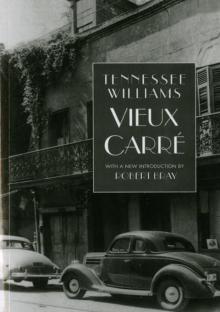 Vieux Carre
Vieux Carre The Night of the Iguana
The Night of the Iguana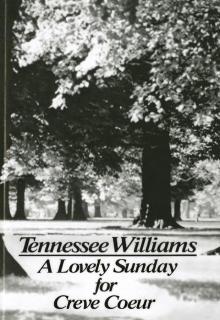 A Lovely Sunday for Creve Coeur
A Lovely Sunday for Creve Coeur Sweet Bird of Youth
Sweet Bird of Youth Streetcar Named Desire
Streetcar Named Desire The Milk Train Doesn't Stop Here Anymore
The Milk Train Doesn't Stop Here Anymore Crazy Night
Crazy Night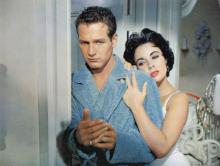 Three Plays of Tennessee Williams
Three Plays of Tennessee Williams A House Not Meant to Stand
A House Not Meant to Stand 27 Wagons Full of Cotton and Other Plays
27 Wagons Full of Cotton and Other Plays Tales of Desire
Tales of Desire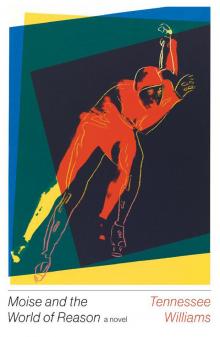 Moise and the World of Reason
Moise and the World of Reason The Traveling Companion & Other Plays
The Traveling Companion & Other Plays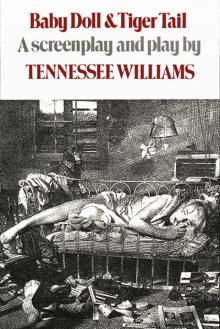 Baby Doll Tiger Tail: A Screenplay and Play by Tennessee Williams
Baby Doll Tiger Tail: A Screenplay and Play by Tennessee Williams Memoirs
Memoirs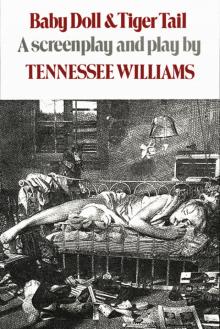 Baby Doll & Tiger Tail
Baby Doll & Tiger Tail Crazy Night (A Mulholland / Strand Magazine Short)
Crazy Night (A Mulholland / Strand Magazine Short) Orpheus Descending and Suddenly Last Summer
Orpheus Descending and Suddenly Last Summer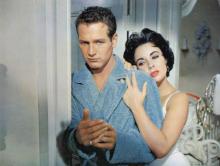 Three Plays
Three Plays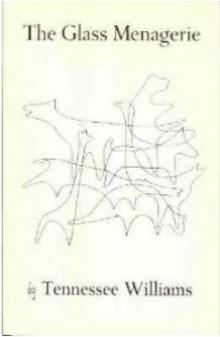 The Glass Menagerie
The Glass Menagerie A Streetcar Named Desire
A Streetcar Named Desire